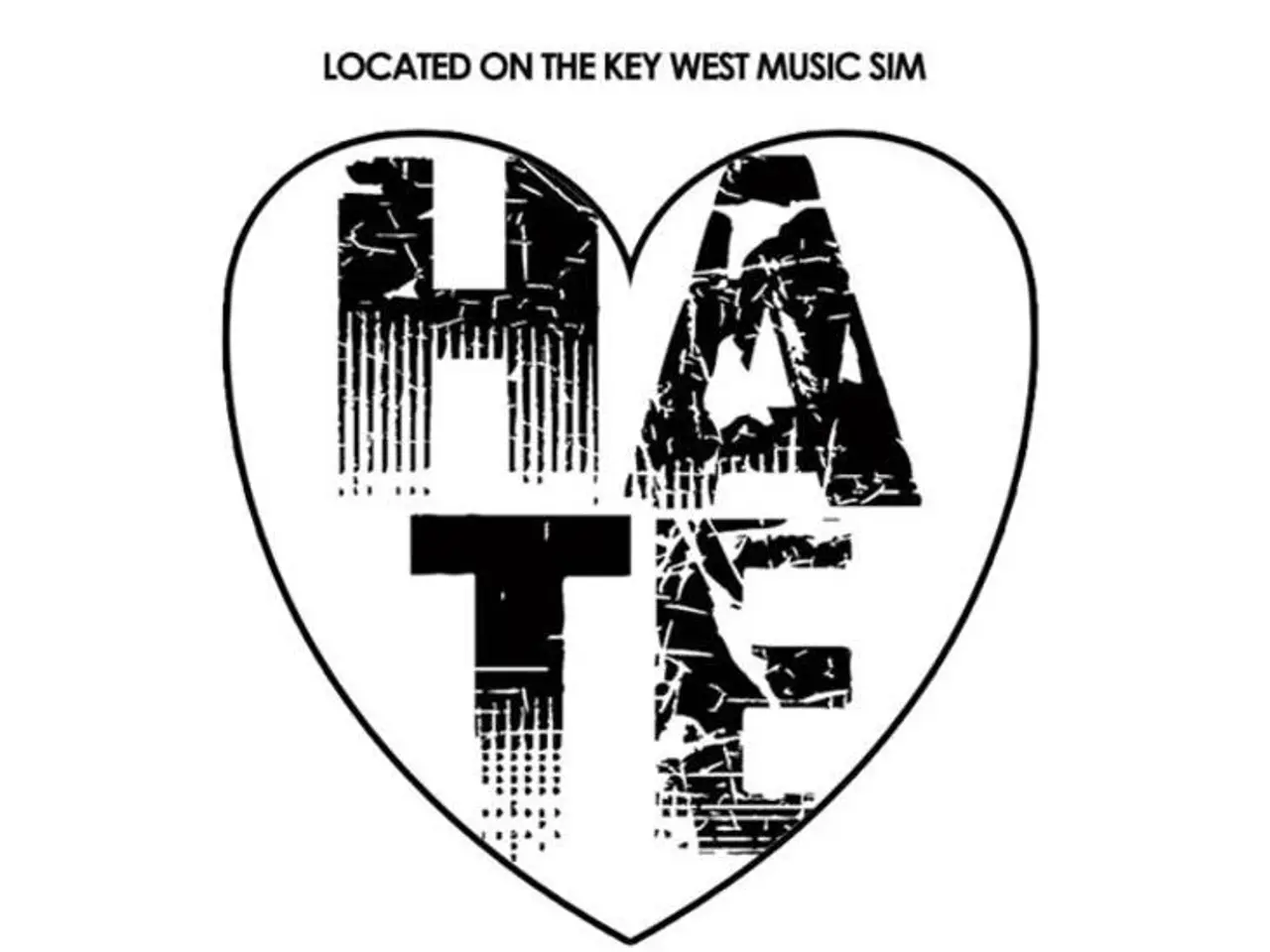Sound the Alarm: Most Germans Demand Action from Politics: Crush Hate and Abusive Speech Online!
- ~ 2 Min Read
Germans Urge for Political Intervention Online - German Net-Users Demand Political Intervention Against Online Hate Speech
Cyberbullying, taunts, threats: Nearly three-quarters of citizens in Germany have already encountered online nastiness. This is revealed by a survey conducted by Forsa on behalf of RTL in connection with the International Day against Hate Speech on this Wednesday.
Action Day Against Hate and Abusive Speech Online on June 18
71 percent of respondents admitted that they had come across hostile, offensive, or aggressive remarks on the net at least occasionally. Younger individuals and frequent social media users particularly have experienced such situations.
However, only 16 percent have been victims of online hate themselves. 84 percent claim they have never experienced cyber hatred. The survey shows: The younger and the more active on social media, the more likely those questioned were targeted.
Regardless of personal experience, a clear majority (70 percent) of those surveyed believe that politics is falling short in dealing with online hate and say: Politics needs to step up its game. This sentiment is shared even by supporters of the far-right Alternative for Germany (AfD) party, with 55 percent expressing this view. Interestingly, only 14 percent perceive measures against online hate as infringing upon free speech. 83 percent don't concur with this view.
The United Nations declared June 18 as the inaugural International Day against Hate Speech in 2021. This year, UN Secretary-General António Guterres underscores the danger of the spread of abusive speech through artificial intelligence and biased algorithms. "We must counter toxic rhetoric with positive messages and empower people to identify, resist, and protect themselves against abusive speech."
RTL Germany is backing the action day with the initiative "Together. Against Hate and Abusive Speech Online". Throughout the week, the channel will delve into the consequences of toxic online culture and provide practical help: How do victims cope with it? What harm does cyberbullying inflict on children's psyches? Where can I seek assistance? What are my legal options, and what proposals does the Ministry for Digital Affairs have?
Note: The polling institute Forsa carried out the survey for RTL Germany between June 10 and 12, 2025. The survey is representative, with a statistical error tolerance of +/- 3 percentage points.
Terms: Hate speech, Abusive speech, Forsa, Polling Institute, Cyberbullying, Internet
- Insights:
- The polling institute Forsa survey conducted for RTL Germany is representative, with a statistical error tolerance of +/- 3 percentage points.
- Current policies in Germany to combat hate speech and abusive speech online are primarily based on the Network Enforcement Act (NetzDG) and influenced by broader European regulations like the Digital Services Act (DSA).
- The NetzDG, passed in 2017 and fully effective since 2018, requires social media platforms with over 2 million users to remove "clearly illegal" content rapidly and all illegal content within 7 days after it is posted. Non-compliance can result in heavy fines up to €50 million.
- The DSA, a recent European Union regulation, imposes obligations on very large online platforms (VLOPs) to manage hate speech and abusive speech reporting, and to increase transparency about their content moderation and algorithm operations.
- German policies aim to balance control of hate speech and abusive speech with the protection of free speech, as indicated by recent legal cases and ongoing debates in official and political circles.
- In light of the rising concern over hate speech and abusive speech online, a considerable proportion of the community (70%) believes that both the employment policy and community policy should prioritize stricter measures to combat such issues on social-media platforms.
- As the United Nations advocates for the International Day against Hate Speech on June 18, German entertainment, politics, and general-news outlets like RTL are also joining the fight against online hate and abusive speech, using their platforms to educate the public about the consequences of cyberbullying, steps for seeking help, and the legal options available.




